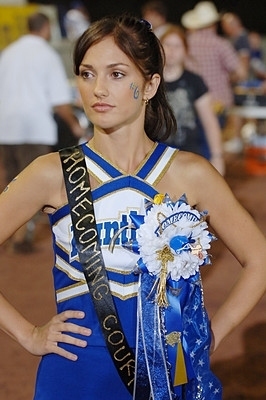Or: Saturday was almost a Sunday.
Saturday somehow managed to completely forget to write this post until 4am Saturday morning (aka "Friday night") when she had a minor heart attack she thought it was Sunday and stayed up
way too late and overslept... and now I'm creeped out from referring to myself in the third person for so long.
Anyways.
I've been thinking about beta readers and critique partners a lot lately (and I'm not the
only one). I think that sometimes, when we ask someone to beta for us, they might not know exactly what to do and we kind of throw them into the deep end.
So here are my "rules"*:
1. Be honest. It doesn't do us any good if you say things are awesome when in actuality, they suck monkey butt. But keep in mind
2. Be nice. Remember, this person put a lot of effort into writing what you're reading. Something that took you only a few hours to read might have taken them months of sweat, tears and blood to write.
Especially with characters. When you have someone essentially living in your head, you tend to care about them. If you're beta-ing for someone, and you don't like their MC (which, let's be honest, happens), flat-out telling them will probably do more harm than good. It's like telling someone their baby is ugly - even if it's true, you just don't do it.
But Laina! You say.
You just told us to be honest!(What, you guys thought I couldn't hear you? Of course I can.)
Be honest, yes, but not mean. If your friend had a kid so ugly that mirrors shattered from its very reflection, you wouldn't tell them, would you? (I'd hope not.)
Constructive criticism is key. If you don't like the MC, tell the writer why. Tell them (nicely! but honestly) what you had problems with.
And that brings me to
3. Point out the good stuff. Writers are generally beings with incredibly low self-esteem, at least when it comes to our writing. We doubt
everything. If you really like a character or a joke makes you laugh, or a sad scene makes you cry, say so! A lot of the time, we won't know if something's good unless someone tells us.
But of course
4. Point out the bad stuff, too. If one of my characters mysteriously sprouts a third hand (*cough* not that that's happened or anything *cough*) and I don't notice, it's okay to tell me if you're my beta. I won't get mad or anything.
5. If the writer has a beta system that works for them, stick with it. I like to send the file to my beta, and have them use MS Word's comment feature (Insert, Comment) to leave comments as they read so I get their honest, as they read reactions. For me, this is like the closest thing to Post-Its stuck in the margins as I can get on the computer (and you all know how I like my
Post-Its). Generally, I'll get their overall thoughts, too, but usually that's in an email.
I have no segue for
6. Respect the rules of their world. This one pertains most to any sort of fantasy/science fiction/paranormal writing. If they say something is so, that's how it is. Their world, their rules. Also
7. Don't try to change the kind of book they're writing. Respect their genre choices. If someone is writing a contemporary novel that's very serious, suggesting they write in a scene where the cast of The Vampire Diaries does a number with the cast of Glee and Damon makes Rachel a vampire probably won't be the most helpful thing in the world.
And remember
8. If you don't like the story/book/whatever, that's okay! You can't like everything and some books just aren't the book for you. That perfectly okay. Just respect keep rule #7 in mind.
9. Have fun. There are no real rules. Relax and enjoy yourself!
10. You tell me! I can't think of a tenth rule and 9 seems really uneven for a list of rules, so you guys tell me what you think a rule for betas should be.
Peace and cookies,
Laina
*The word rules is used very loosely here, since there are no hard and fast rules. More like suggestions, good ideas, etc. And of course, this is all my opinion.
P.S. Don't forget, I'm still looking for more questions! About anything, writing or just about me.






















